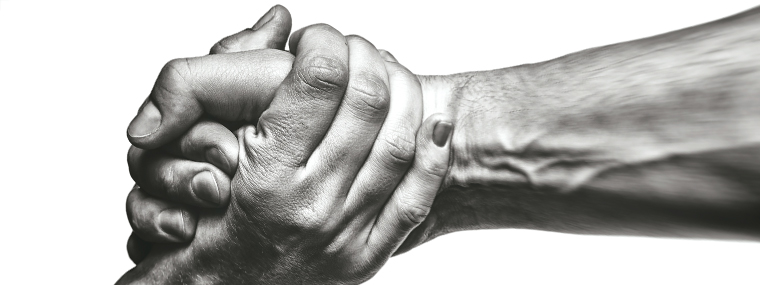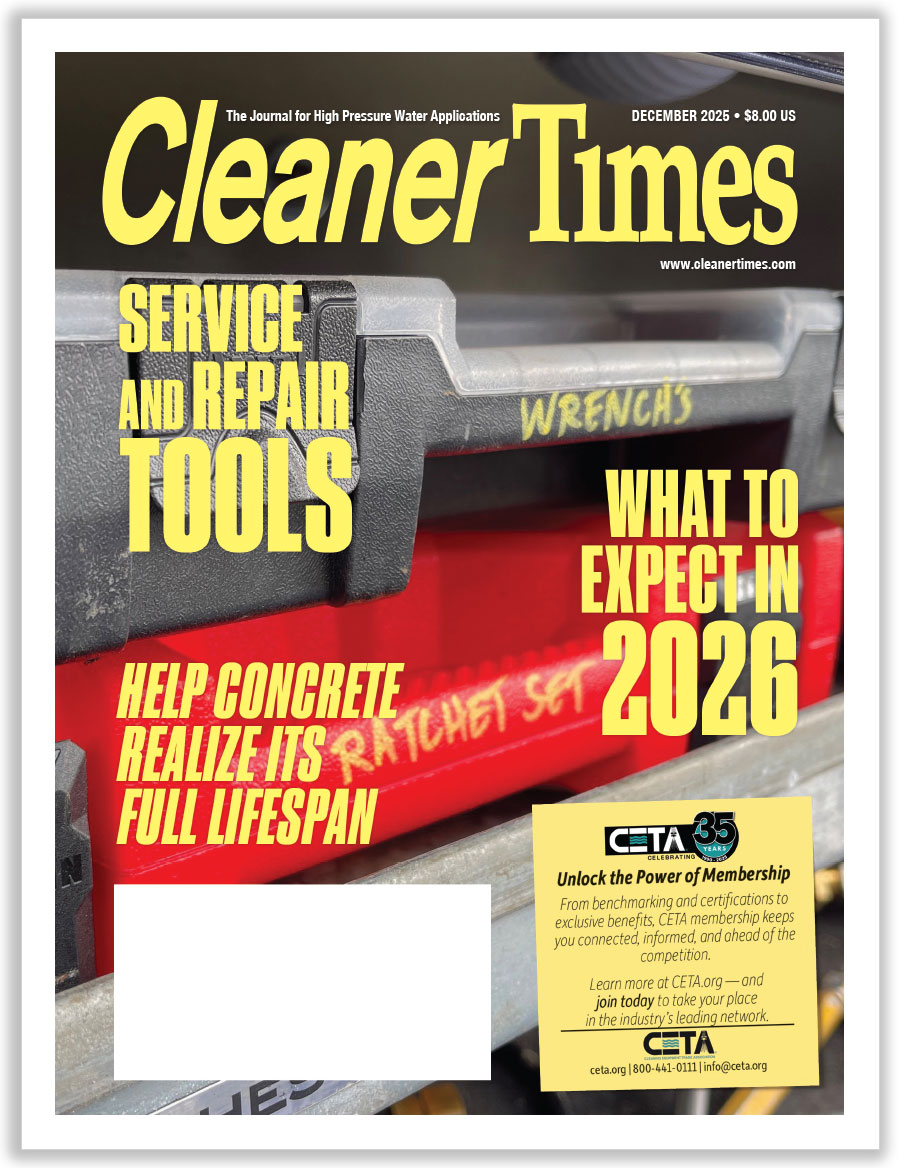
Financial
A Business’s Guide to Virus Survival
By Mark E. Battersby / Published May 2020

Adding to the Family First Coronavirus Response Act (FFCR) that became law earlier in March and the actions of the administration, the Coronavirus Aid, Relief, and Economic Security (CARES) Act is now law. While it dwarfs prior efforts by our lawmakers to take on economic crises and natural disasters, key elements of this bill are untested and controversial.
The new law establishes a $454 billion program for guaranteed, subsidized loans to larger businesses in the hopes of leveraging up to $4.5 trillion to distressed businesses, states, and municipalities. Although there are restrictions, all loan approvals would be up to the Treasury Department’s discretion.
Of interest to many pressure cleaning contractors and business owners, the bill will provide one-time direct payments of $1,200 per adult with income below a $75,000 ceiling, $2,400 per married couple, and $500 per child. Above the ceiling, payments will be gradually reduced, disappearing after an individual’s income reaches $100,000.
The newly-passed legislation includes numerous provisions to help pressure cleaning businesses weather the impending crunch, providing them with zero interest loans, tax breaks, and other subsidies. Also in the newly passed legislation are business tax cuts that include an increase in the deductions for interest paid by a business from the 39 percent level created by the Tax Cuts and Jobs Act to 50 percent.
The Unemployment Crisis
The new law allocates $250 billion to expand unemployment insurance to more workers and lengthen the duration to 39 weeks (up from the normal 26 weeks). Six hundred dollars extra each week would be provided for four months.
To help bring back workers already laid off, the eight weeks of unemployment assistance will be retroactive to February 15, 2020. But, that’s not all; on the books are the following items:
- Until December 31, 2020, some employers will be required to pay sick leave to employees. Fortunately, there is a compensating 100-percent tax credit.
- An employee retention tax credit that is estimated to provide $50 billion to businesses that retain employees on their payroll will cover 50 percent of workers’ paychecks up to $10,000. A pressure cleaning business will also be able to defer payment of the 6.2 percent Social Security payroll tax for two years.
- The so-called “Pandemic Unemployment Assistance” program is for self-employed and contract workers who are typically not eligible for unemployment payments.
- Also included are incentives for work-sharing and a program to cover a portion of lost wages for workers whose hours have been reduced, designed to incentivize businesses to retain workers by employing them for fewer hours.
Paying For It All
The CARES Act contained a number of programs and funding to help every pressure washing business weather the financial impact of the coronavirus pandemic, including the following:
- For small pressure cleaning businesses, access to nearly $350 billion in loans will help cover expenses such as payroll, rent, and utilities, which would not have to be repaid if the current workforce is maintained.
- Zero-interest loans are available for businesses with fewer than 500 employees—loans that could be forgiven under certain circumstances such as not firing workers.
- Mostly for businesses with more than 500 employees, the latest stimulus bill provides $500 billion to back loans. However, any business receiving one of these loans will be subject to a ban on stock buybacks and curtailment of executive bonuses.
- Most notably, the CARES Act earmarks $349 billion for loans to small businesses—to be spent on rent, payroll, and utilities and treated as a grant that does not have to be repaid. That’s right, loans of up to $10 million will be made available through lenders certified by the Small Business Administration (SBA), such as banks and credit unions. The government will pay off the loan balance if the business either does not lay off workers or rehires already laid-off workers.
Those pressure cleaning businesses that have recently laid off workers would be required to repay a larger portion of their loans, and loans covering salaries of more than $100,000 a year wouldn’t qualify for forgiveness. No qualifying business would have to repay loans covering up to eight weeks worth of payroll costs. - The SBA now has the authority—and available funds—to make more than $7 billion in loans to qualifying small businesses via SBA Economic Injury Disaster Loans. Each Economic Injury Disaster Loan assistance declaration issued by the SBA makes loans available to small businesses in designated areas of a state or territory. These loans may be used to pay fixed debts, payroll, accounts payable, and other bills that can’t be paid because of the disaster’s impact. The interest rate is 3.75 percent and, in order to keep repayments affordable, have term repayment periods of up to 30 years.
Losses
Keeping in mind that “lost income” is not a legitimate tax deduction, other provisions in the tax law may help pressure cleaning business owners recover financially from the tax impact of the coronavirus pandemic and other disasters, especially when the federal government declares their location to be a major disaster area.
Both individuals and businesses in a federally declared disaster area can get a faster tax refund by claiming losses related to the disaster on the tax return for the previous year, usually by filing an amended tax return. Regular business losses must be deducted from this year’s income, if there is any.
A net operating loss (NOL) occurs when a pressure washing business has more tax deductions than taxable income in a given year. NOL carrybacks formerly generated a refund of taxes paid in earlier years to provide an infusion of cash. Today, most NOLs can only be carried forward. What’s more, for losses arising in taxable years beginning after December 31, 2017, the NOL deduction is limited to 80 percent of taxable income (determined without regard to the deduction).
While the pressure washing business can’t get this tax break if it is a pass-through entity (such as sole proprietorships, partnerships, or S corporations), their owners can apply their NOL on their personal tax returns. Regular corporations are, of course, taxed at the corporate level and the NOL carry-forward is applied on the corporate tax return.
Already Helping
Thanks to the FFCR Act passed early in March, employers providing paid family and medical leave to their employees may claim a tax credit, a direct reduction of their tax bill rather than a deduction, that has been extended through 2020. There are similar tax credits for self-employed persons.
- The Treasury Department, the IRS, and the Department of Labor earlier announced that small and midsize employers can take advantage of two new refundable payroll tax credits.
- Until December 31, 2020, certain employers are required to pay sick leave to specified employees with compensating 100 percent tax credit. Under the FFCR Act, employers must provide 14 days of paid sick leave if workers are ill or quarantined because of the virus or have to care for an infected family member.
Although the provision requiring employers to pay sick and medical leave to workers has been extended to include the 2020 tax year, employers with fewer than 50 employees are eligible for an exemption from the requirement to provide leave to care for a child whose school is closed or child care is unavailable.
To take immediate advantage of the paid leave tax credits, a pressure cleaning business can retain and access funds that they would otherwise pay to the IRS in payroll taxes. If those amounts are not sufficient to cover the cost of paid leave, employers can seek an expedited advance from the IRS using a soon-to-be released, streamlined claim form.
Self-Help Coronavirus Survival
Many pressure washing business owners busy attempting to fathom the steady stream of new government programs, plans, and benefits may be overlooking remedies that already exist. Consider the following.
Line of credit. A pre-established line of credit allows the pressure cleaning business to borrow in increments as needed, repay it, and borrow again as long as the credit line remains open. Typically, the operation is required to pay interest on any balance borrowed and a lesser amount for having ready access to the unexpended amount of the line of credit.
Business Interruption Insurance. Business interruption insurance is coverage that replaces business income lost in a disaster. Business interruption insurance is not sold as a separate policy but is either added to a property/casualty policy or included in a comprehensive package policy as an add-on or rider.
And don’t forget those extended deadlines for both filing tax returns and paying taxes. Although the April 15 tax filing deadlines for many pressure cleaning businesses have passed, individuals (including many small business owners) now have until July 15 to file. Best of all, if money is owed the IRS, delayed payments will be interest and penalty-free for 90 days.
As this ever-evolving fight against the COVID-19 continues, attention must be paid to new developments. So, more is on the way, and as always, the ever-changing response to the pandemic and the complexity of the rules when dealing with its economic impact make professional assistance advisable.





